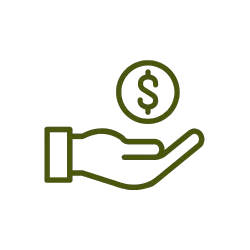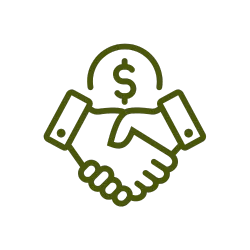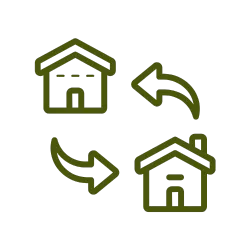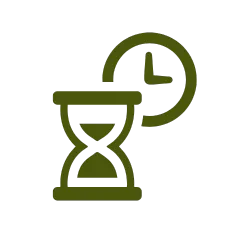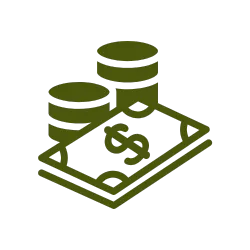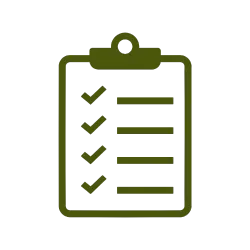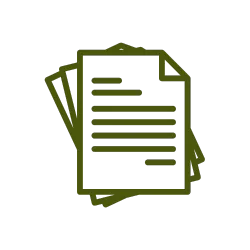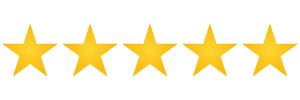Reverse Mortgages
For seniors looking to boost retirement income, a reverse mortgage unlocks home equity with no monthly payments. Stay in your home and gain financial flexibility.
Reverse Mortgages
For seniors looking to boost retirement income, a reverse mortgage unlocks home equity with no monthly payments. Stay in your home and gain financial flexibility.

What is a Reverse Mortgage?
A reverse mortgage is a type of loan that allows homeowners, typically elderly homeowners, to borrow money against the equity in their homes. Unlike a traditional mortgage, where the borrower makes regular payments to the lender, with a reverse mortgage, the lender pays the borrower (Either in a lump sum or in regular installments). The loan is typically repaid when the borrower dies, sells the home, or moves out of the home permanently. At that point, the lender will typically sell the home and use the proceeds to repay the loan. If the sale price of the home is less than the outstanding balance on the loan, the lender may take a loss. However, if the sale price is more than the outstanding balance, the borrower, or their heirs, may receive the difference.
Reverse mortgages were originally designed to help older homeowners who had significant equity in their homes but limited income to access that equity and supplement their retirement income. The idea was to allow these homeowners to tap into their home equity without having to sell their homes or take out a traditional mortgage.

What is a Reverse Mortgage?
A reverse mortgage is a type of loan that allows homeowners, typically elderly homeowners, to borrow money against the equity in their homes. Unlike a traditional mortgage, where the borrower makes regular payments to the lender, with a reverse mortgage, the lender pays the borrower (Either in a lump sum or in regular installments). The loan is typically repaid when the borrower dies, sells the home, or moves out of the home permanently. At that point, the lender will typically sell the home and use the proceeds to repay the loan. If the sale price of the home is less than the outstanding balance on the loan, the lender may take a loss. However, if the sale price is more than the outstanding balance, the borrower, or their heirs, may receive the difference.
Reverse mortgages were originally designed to help older homeowners who had significant equity in their homes but limited income to access that equity and supplement their retirement income. The idea was to allow these homeowners to tap into their home equity without having to sell their homes or take out a traditional mortgage.

How do Reverse Mortgages work?
To qualify for a reverse mortgage, the homeowner must be at least 62 years old and own their home outright, or have a significant amount of equity in the home. The amount of the loan is based on the equity in the home, the age of the borrower, and the current interest rates. The older the borrower, the more they can borrow.
There are three types of reverse mortgages: single-purpose reverse mortgages, proprietary reverse mortgages, and home equity conversion mortgages (HECMs), which are insured by the Federal Housing Administration (FHA). Single-purpose reverse mortgages are offered by some state and local governments, as well as non-profit organizations. They are generally the least expensive option but are only available for a specific purpose, such as home repairs or property taxes. Proprietary reverse mortgages are private loans offered by banks and other financial institutions. They are typically available to borrowers with higher home values and can be more expensive than other types of reverse mortgages. HECMs are the most common type of reverse mortgage and are insured by the FHA. They have a number of features that make them attractive to borrowers, including more flexible repayment options and the ability to use the loan proceeds for any purpose.
One of the key benefits of a reverse mortgage is that the borrower does not have to make payments on the loan while they are living in the home. However, the borrower is still responsible for property taxes, homeowner's insurance, and maintenance of the property.
How do Reverse Mortgages work?
To qualify for a reverse mortgage, the homeowner must be at least 62 years old and own their home outright, or have a significant amount of equity in the home. The amount of the loan is based on the equity in the home, the age of the borrower, and the current interest rates. The older the borrower, the more they can borrow.
There are three types of reverse mortgages: single-purpose reverse mortgages, proprietary reverse mortgages, and home equity conversion mortgages (HECMs), which are insured by the Federal Housing Administration (FHA). Single-purpose reverse mortgages are offered by some state and local governments, as well as non-profit organizations. They are generally the least expensive option but are only available for a specific purpose, such as home repairs or property taxes. Proprietary reverse mortgages are private loans offered by banks and other financial institutions. They are typically available to borrowers with higher home values and can be more expensive than other types of reverse mortgages. HECMs are the most common type of reverse mortgage and are insured by the FHA. They have a number of features that make them attractive to borrowers, including more flexible repayment options and the ability to use the loan proceeds for any purpose.
One of the key benefits of a reverse mortgage is that the borrower does not have to make payments on the loan while they are living in the home. However, the borrower is still responsible for property taxes, homeowner's insurance, and maintenance of the property.

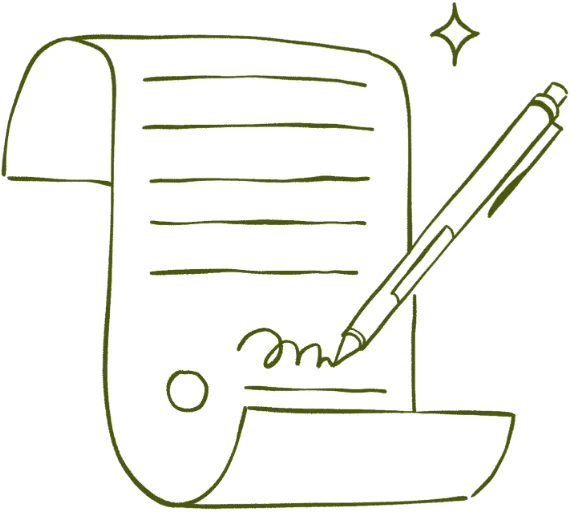
When should I consider a Reverse Mortgage?
Reverse mortgages can be a useful financial tool for elderly homeowners who need extra income, but they can also be complex and expensive. It's important to fully understand the terms and conditions of the loan before taking out a reverse mortgage. It's also a good idea to consult with a financial advisor or any of our experienced team members at Meridian Title & Escrow who can provide guidance on whether a reverse mortgage is the right option for your specific situation.

When should I consider a Reverse Mortgage?
It's important to note that the probate process can be complex and time-consuming, especially if the estate is large or there are multiple heirs or beneficiaries. In some cases, it may be beneficial to work with an attorney or our experienced team at Meridian Title & Escrow to help navigate the process. Additionally, there may be tax implications to consider when selling property as part of an estate, so it's important to consult with a tax professional as well.
real google reviews from clients
WHY OTHERS RECOMMEND US
Copyrights 2025 | Meridian Title & Escrow | Terms & Conditions
